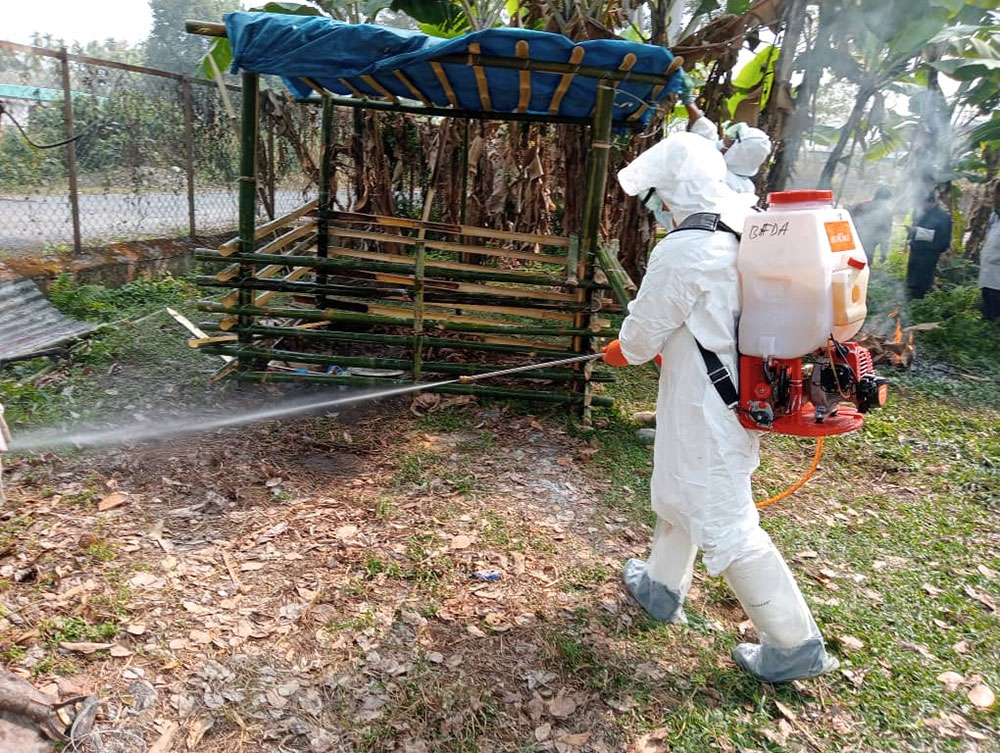YK Poudel
To enhance the technical capabilities of field officials, National Centre for Animal Health (NCAH) trained 64 officials from across the country on the ‘African Swine Fever outbreak detection and response simulation exercise’ which ended on February 8.
The four-day training, held in Gelephu, also evaluated the efficacy of the revised National African Swine Fever Prevention and Control Plan 2024 (NASFPCP).
According to a press release from the NCAH, the African Swine Fever (ASF) outbreaks spanning from November 2022 to August 2023, had a socio-economic impact on pig-rearing communities, requiring a substantial governmental expenditure exceeding Nu 35.5 million towards response efforts.
In response to these challenges, the Department of Livestock, in collaboration with other agencies, carried out a comprehensive review of the National ASF Prevention and Control Plan (NASFPCP), in consultation with field professionals from the Food and Agriculture Organization’s Emergency Management Centre (FAO EMC) mission in Bhutan.
The ASF, initially emerged among domestic pig populations in Bhutan in April 2022, posing formidable challenges to the nation’s agriculture sector, particularly affecting southern dzongkhags.
Senior Veterinary Officer of NCAH, Dr Pelden Wangchuk, said that the simulation exercise was a mix of field activities and discussions. “Sensitization sessions on ASF prevention and control strategies and practical demonstrations of personal protective equipment (PPE), sampling and decontamination protocols,” he said.
“Moreover, the participants were trained on critical response measures, disease outbreak investigation, risk assessments, de-population, disposal, decontamination, surveillance, quarantine, movement control, and other ancillary activities,” he said.
Participants, he said, were acquainted with the incident command structure of ASF outbreak response, understanding the roles and responsibilities of various rapid response teams.
During the closing session, Dasho Dzongda of Sarpang, Lobzang Dorji shared his concern about the ASF in southern dzongkhags and emphasised the need for capacity-building exercises. “Swift detection and control of outbreaks at their source will be efficient.”
The participants were from the livestock department, Bhutan Food and Drug Authority, Department of Forests and Park Services, Royal Bhutan Police, and the FAO Country Office.
The simulation exercise was a part of the Emergency Technical Cooperation Programme (eTCP) of FAO.
Starting September 2023, as the lead agency in animal health, the NCAH has been implementing the ‘Emergency technical assistance to minimise risks and impacts of African swine fever (ASF) in Bhutan’ project worth USD 250,000.
The training was funded by the Food and Agriculture Organization (FAO).


